Goodbye, AI Awareness Pioneer: Daniel Dennett

Daniel Dennett , a giant in cognitive science and philosophy and professor emeritus at Tufts University , has died at the age of 82.
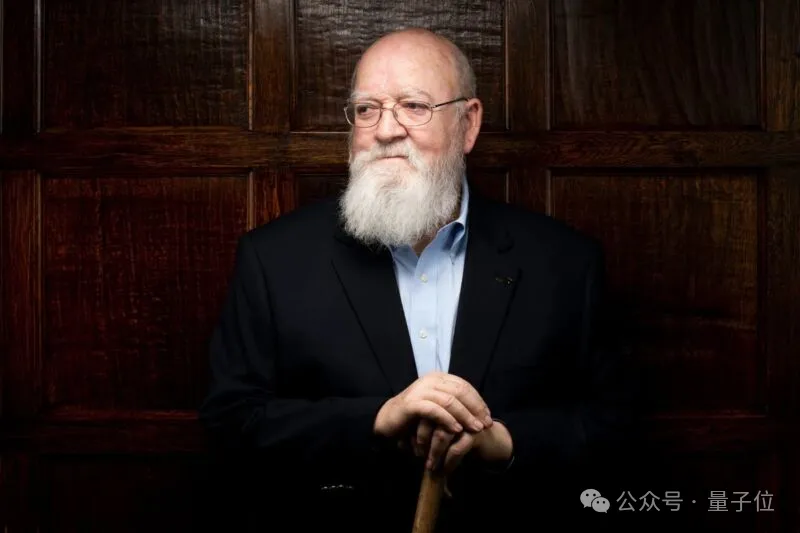
Dennett has made significant contributions in the field of philosophy and is known as one of the "Four Horsemen of Evolution" . He is a leading figure in the new atheism movement in the West in the past two decades.
His masterpiece "The Explanation of Consciousness" is considered to be one of the most important works in the philosophy of mind and even contemporary philosophy. It explores the phenomenon of consciousness in an all-round way.
His unique views on "consciousness" stem from his deep connection with computers and artificial intelligence , and he has widely absorbed information from neuroscience, psychology, artificial intelligence and other fields.
At the same time, his thoughts and remarks have profoundly affected people's understanding of artificial intelligence, consciousness, and thought.
For example, Dennett once said:
The question is not whether machines can think, but whether humans can think.
Intelligence is not limited to humans; it is a matter of information processing, and machines can exhibit intelligent behavior.
Artificial intelligence is not a threat to human autonomy; it is a tool that can enhance our cognitive abilities.
We should embrace the possibilities of artificial intelligence and use it as a tool to understand ideas and advance knowledge.
Artificial intelligence has the potential to revolutionize our understanding of thought and consciousness, but it cannot replace the human experience.
Therefore, Dennett is also called an "AI pioneer" by industry insiders .
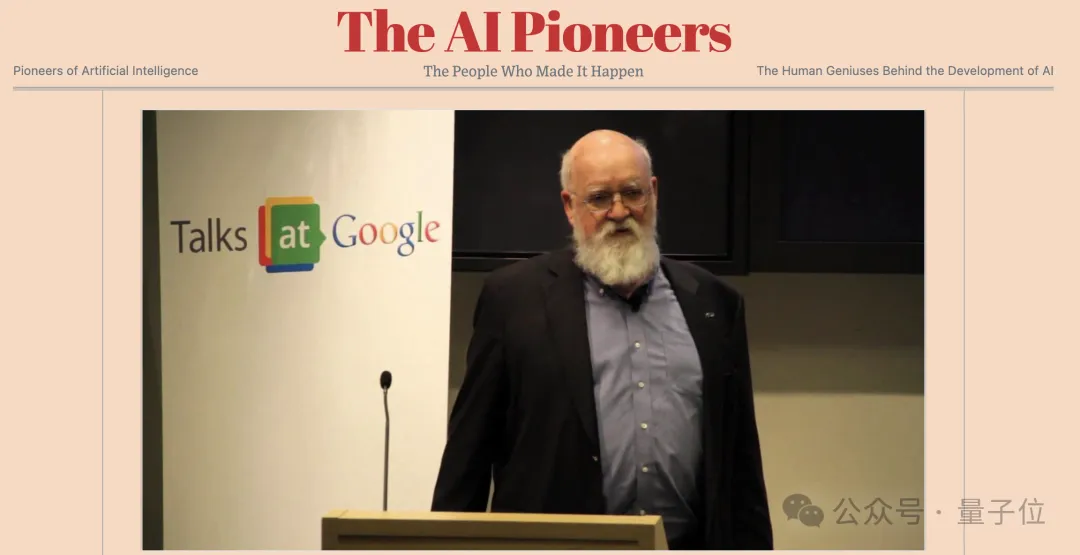
Even at the end of his life (a month ago), Dennett was actively active on social media, sharing his thoughts on cutting-edge technologies such as large language models and ChatGPT.
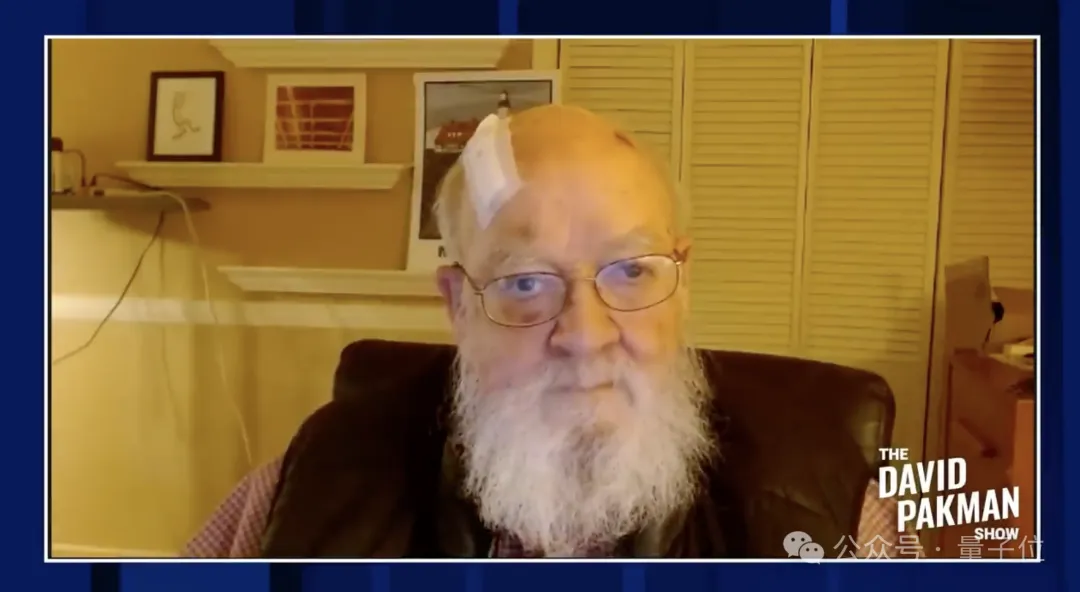
Nowadays, Dennett’s unfortunate demise has caused many leaders in the technology industry to sigh.
As DeepMind CEO Hassabis remembered:
We are very sad to hear of Dennett's passing.
I still remember the wonderful and wide-ranging conversations we had about artificial intelligence, creativity, qualia, and of course consciousness, including Theseus’ ship about artificial intelligence.
He was a great thinker and will be deeply missed.
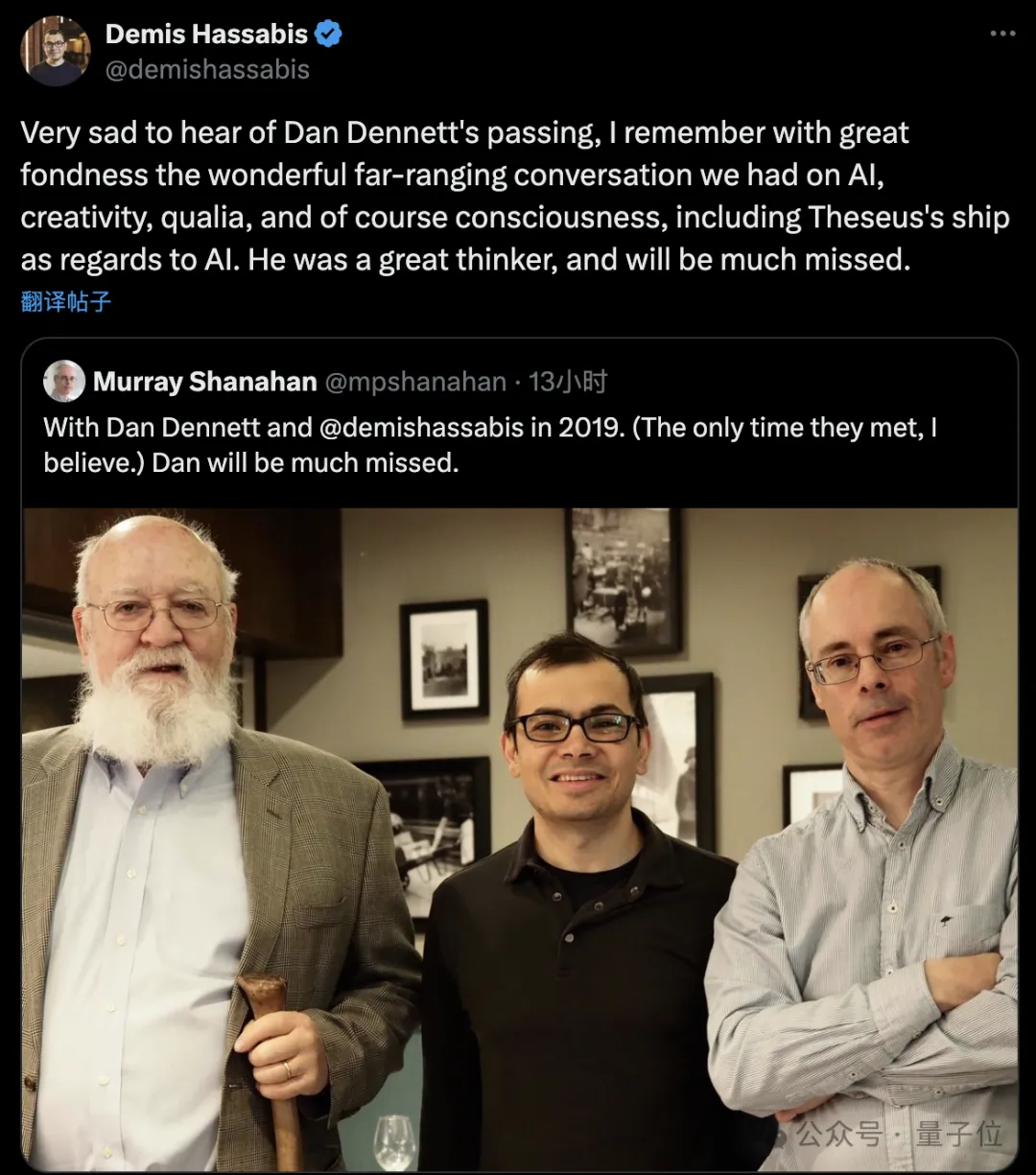
So now, let us approach this giant of thought together.
The legendary life of a pioneer in AI consciousness
Dennett was born in Boston, USA, in 1942, but spent part of his childhood in Lebanon.
When he was five years old, due to the tragic death of his father in a plane crash, Dennett's mother took him and his two sisters back to live in Boston.
Regarding Dennett’s bond with philosophy and cognitive science, we must start from his childhood experience.
Because when he was a little boy, all he thought about was "how things work ." He liked to take things apart and see what was inside that made them work properly.

Based on this, Dennett recalled:
I am also like an engineer at heart.
And it turns out that as a philosopher, having such an attitude of thinking is also a pretty good thing.
An extension of this is - figuring out what makes an idea work, and why.

Therefore, in Dennett's view, he particularly supports the first point, that is, if you want to be a philosopher, you need to understand the world and understand science.
And he also said very definitely:
A philosopher with scientific training, I am far more powerful than I once was.
In summer camp when he was 11 years old, a camp director labeled young Dennett a "philosopher", which became a small omen for his life journey.
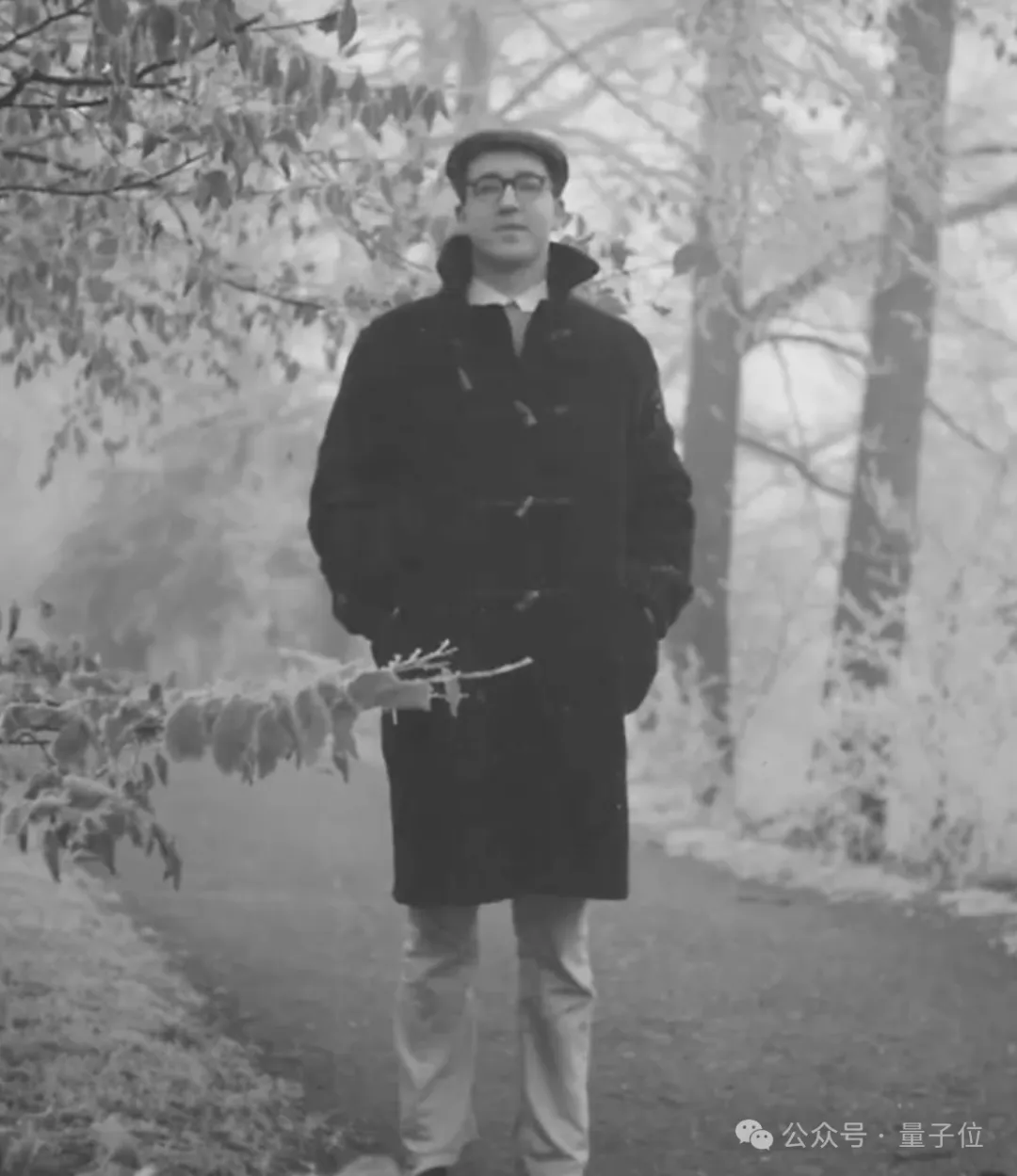
Dennett attended the famous Phillips Exeter Academy in high school. After obtaining a bachelor's degree from Harvard University, he continued his studies at Oxford University, studying under Gilbert Ryle, and obtained a doctorate in philosophy in 1965. .
Ryle's term "soul in the machine" can be said to have had a profound impact on Dennett, which also prompted him to study neuroscience on his own and begin to explore the fields of psychology, computer programming, linguistics, and artificial intelligence.
The title of his doctoral thesis is "Mind and Brain: An Introspective Description Based on Neurological Discoveries."

Dennett also recalled an interesting incident during his time in Oxford.
He and a group of fellow graduate students were discussing what would happen if your arm fell asleep and you couldn't control it.
Dennett was curious at first and asked, "What is this problem? Does it mean that the nerve in the arm is pinched? Or is it bleeding or something?"
However, just such a question made everyone surprised, why would a philosopher pay attention to the physiological changes of the human body, and thought that Dennett was abandoning philosophy.
So Dennett rushed to the library to "surge" himself with knowledge and understand how the nervous system works.
This incident was a very important turning point in Dennett's life. :
When I learned about neurons, I suddenly thought about the cells in the brain that send signals. They can be a process of your brain's evolution, that is, learning.
Personal learning is just another Darwinian process.
At the time, Dennett was not very familiar with the concepts of Darwinian evolution and natural selection, but the more he learned, the more he felt that this was the key to putting things together.
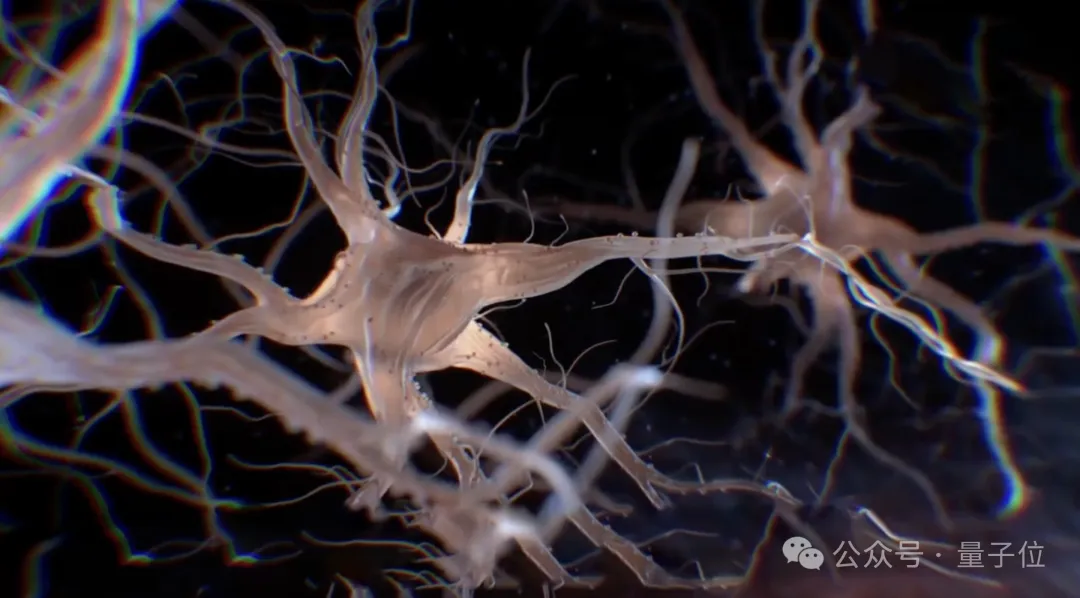
For the next six years, Dennett taught at the University of California, Irvine, until 1972, when he began working at Tufts University.
During this time, he also taught as a visiting professor at Harvard University and several other schools. He is a self-described “self-taught”, or rather, the beneficiary of hundreds of hours of informal tutoring from many of the world’s leading scientists.
Why do you say that?
Because in 1976, something that became “one of the biggest eye-opening moments” happened for him—he read Richard Dawkins’ book “The Selfish Gene” and learned about Here comes the concept of memes .
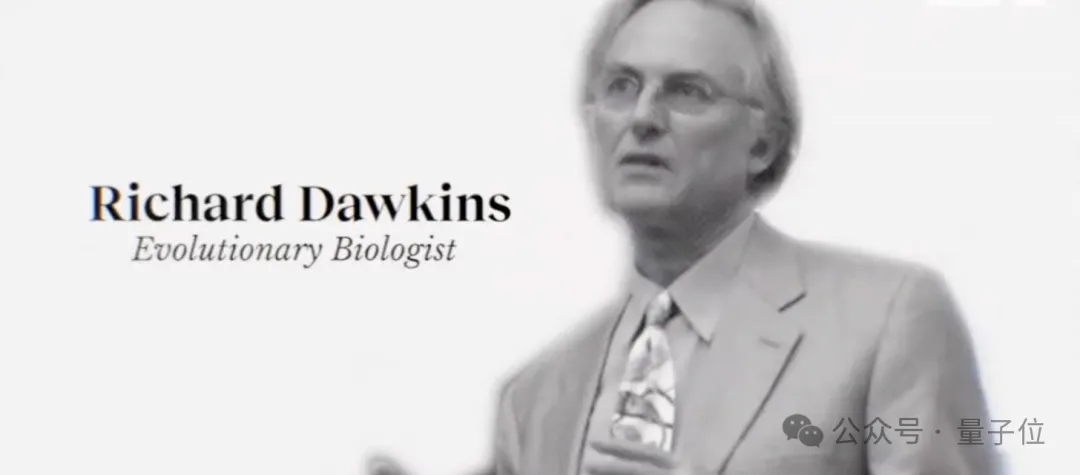
When Dawkins coined the word "meme," he was still thinking in general terms.
When people today see this word, they think it means "popular terminology," but what Dawkins proposed is a very general theory about the evolution of human culture, which greatly expanded the capabilities of the human brain.
Dennis said frankly:
The difference between chimpanzees and humans is that chimpanzees' brains are largely unfurnished, while our brains are filled with memes.
Just like your mobile phone and computer, they are not powerful devices until you download and install many apps. The memes in our brains are like these apps.

In 1978, Dennett published the short story "Where Am I?" ”, explores the relationship between consciousness and body through a thought experiment.
After his academic career took off, he published "Brainstorm: Philosophical Essays on Mind and Psychology" in 1981, and began to build a reputation in the academic world.
In 1992, his book Consciousness Explained was published, an in-depth exploration of the philosophical and scientific foundations of consciousness; he went on to publish important works such as Darwin's Dangerous Idea, in which he explored the impact of evolution on human beings. The meaning of self-knowledge.
When looking back at his own research, Dennett believes that the best idea is "The Intentional Stance":
We automatically adopt strategies for anything complex and interesting.
If we could act as an agent, what would it want? what do you know? Or believe in something?

Dennett believes that we have been using an "intentional" gesture to endow other complex things, such as beliefs and desires.
It is reasonable for this kind of thing to happen in the physical world we live in, but what if it is in the world of artificial intelligence?
Especially if they are full of false and deliberate systems, fake ideas, and even false "people", we seem to be unable to resist thinking that they are real, as if they have real desires and beliefs.
In Dennett's opinion, this matter is a very dangerous meme:
We will not be able to take our attention away from them; they will capture our attention and manipulate humans.
The current AI large language models, such as GPT-4 and so on, their goal is "truthiness" rather than truth.
A more vivid metaphor is that they are more like historical novelists than historians.

The difference between humans and AI is that we can be serious about the truth unless we want to deliberately lie; but LLM, they currently do not have the ability to deliberately lie:
Technology still has a long way to go, and at the same time, we need laws to protect the authenticity of AI.
also been criticized
Dennett's achievements in the fields of philosophy and cognitive science earned him the honor of being named "Humanist of the Year" by the American Humanities Association in 2004.
In 2012, he was awarded the Erasmus Prize for his ability to communicate the cultural significance of science and technology to a wide audience; and in 2018, Radboud University in Nijmegen, the Netherlands, awarded him an honorary degree in recognition of his interdisciplinary work. Scientific contributions and impact.
While exploring philosophy and science, Dennett also gained some unique insights of his own.
For example, talking about scientists, he would say:
Scientists are paying attention to philosophy because they are also mortals and will fall into philosophical mistakes or philosophical confusions, and they need the help of philosophers.
Many people will just immerse themselves in hard work and not listen to or even reject criticism from the outside world, but this will only make us further and further away from the truth of the matter.
Ideas and research that many people really like:

But his views are so original and sharp that he is not immune to some objections.
For example, when talking about philosophers, he criticized:
I am shocked that until now, so many philosophers are so complacent in their ignorance of evolution.
They believe that if we have a mechanical physical explanation of biology, it devalues these wonderful things like creativity and understanding.
Dennett firmly believes that even philosophers need to understand the intricate and exquisite principles of nature. Nature allows us to better understand and create.
All in all, Dennett's passing is definitely a very regrettable thing, but his thoughts and works, like seeds sown around the world, will continue to sprout, bloom, and bear fruit in the fields of human culture.